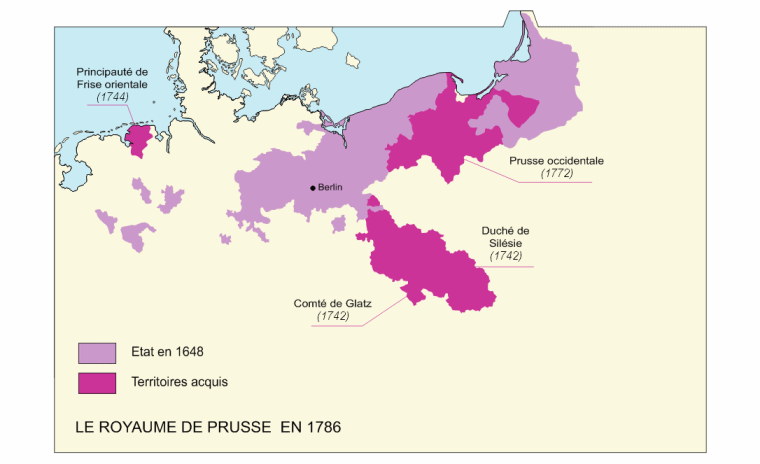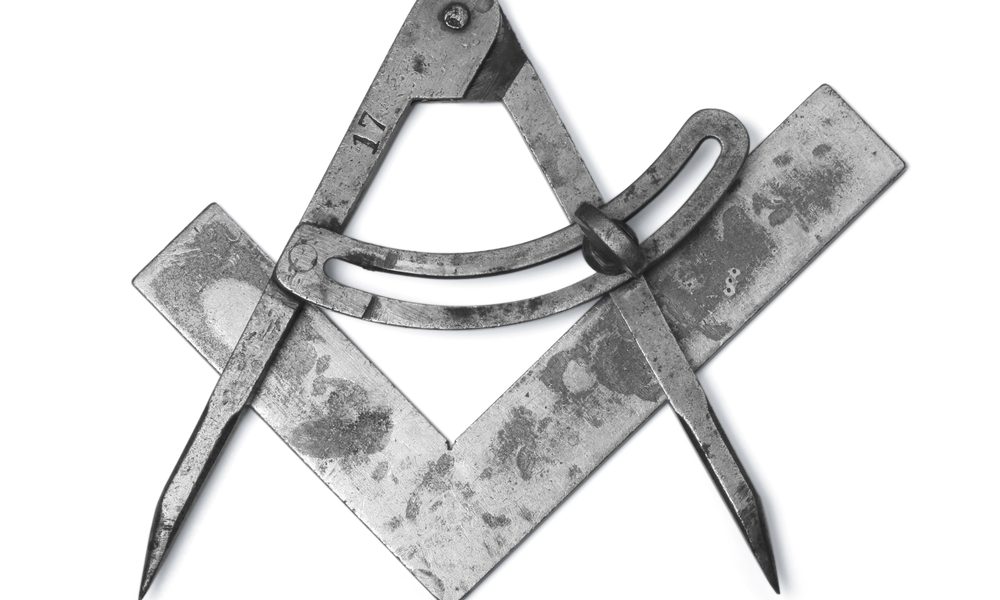
1750 AD to 1770 AD, Psalm 134: Freemasons.
This site was first built in French (see www.147thgeneration.net). The English translation was mainly done using « google translation ». We have tried to correct the result of this translation to avoid interpretation errors. However, it is likely that there are unsatisfactory translations, do not hesitate to communicate them to us for correction.
(for that click on this paragraph)
Summary
This generation of the 1750s and 1760s.
According to our count, this generation is the 134th generation associated with Psalm 134. It is in this Psalm 134 that we therefore find an illustration of the facts of this generation.
To this generation emerges Prussia, which will mark history to come. But for this generation, Prussia stands out for its attachment to the Aufklärung, the German Enlightenment. With the exception of Spain and Portugal, all of Western Europe opened up to the Enlightenment.
In the German sphere emerges Moses Mendelshonn, a follower of an enlightened Judaism, the Haskalah.
In fact, if the Jews can gradually take an active part in intellectual and scientific life, it is thanks to the rise of Freemasonry. This tries to provide an answer to the compatibility between the new sciences and religion. This results in freedom of belief thus opening a path for the Jews to integrate.
Freemasons claim that their ancestor was Hiram, architect of the Temple of Solomon. Temple of Solomon which is discretely reproduced within the Freemasons Temples.
Talk
Prussia
In the preceding generation, that of the 1730s and 1740s, France had helped Frederick II to seize Silesia at the expense of Austria. Reversal of alliance to this generation which results in the seven-year war (1756-1763) which confirms Prussia as a new European power, Prussia which will impact both the ideas and the history of the European peoples for two centuries to come. For the better and, unfortunately, for the worse.
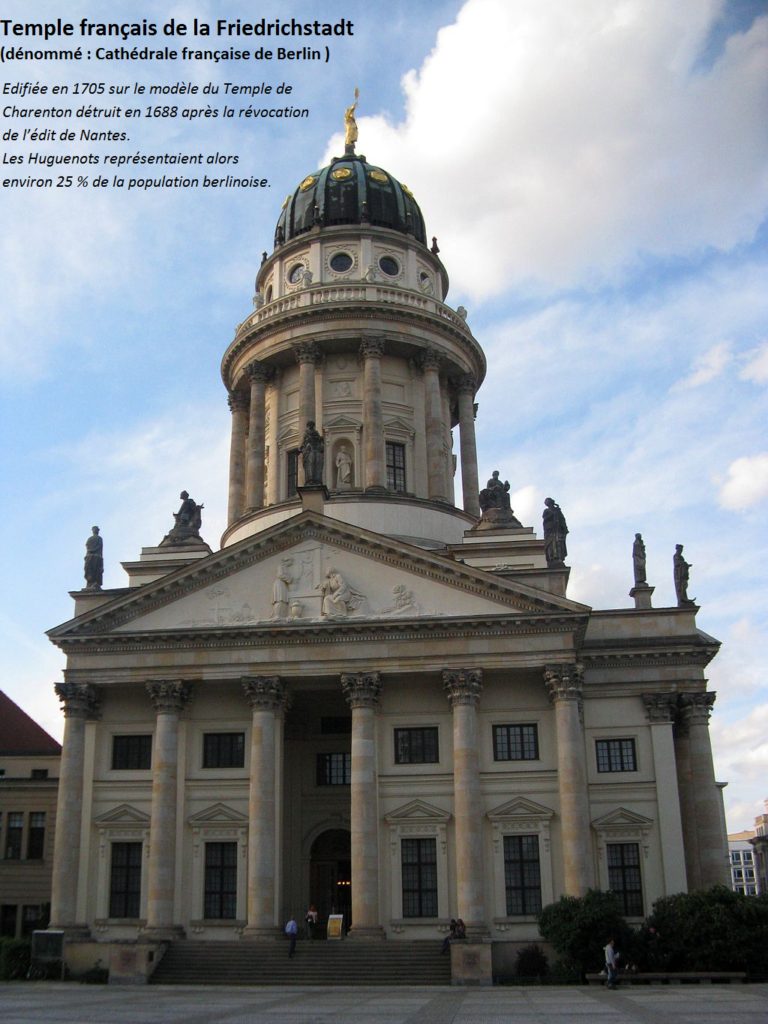

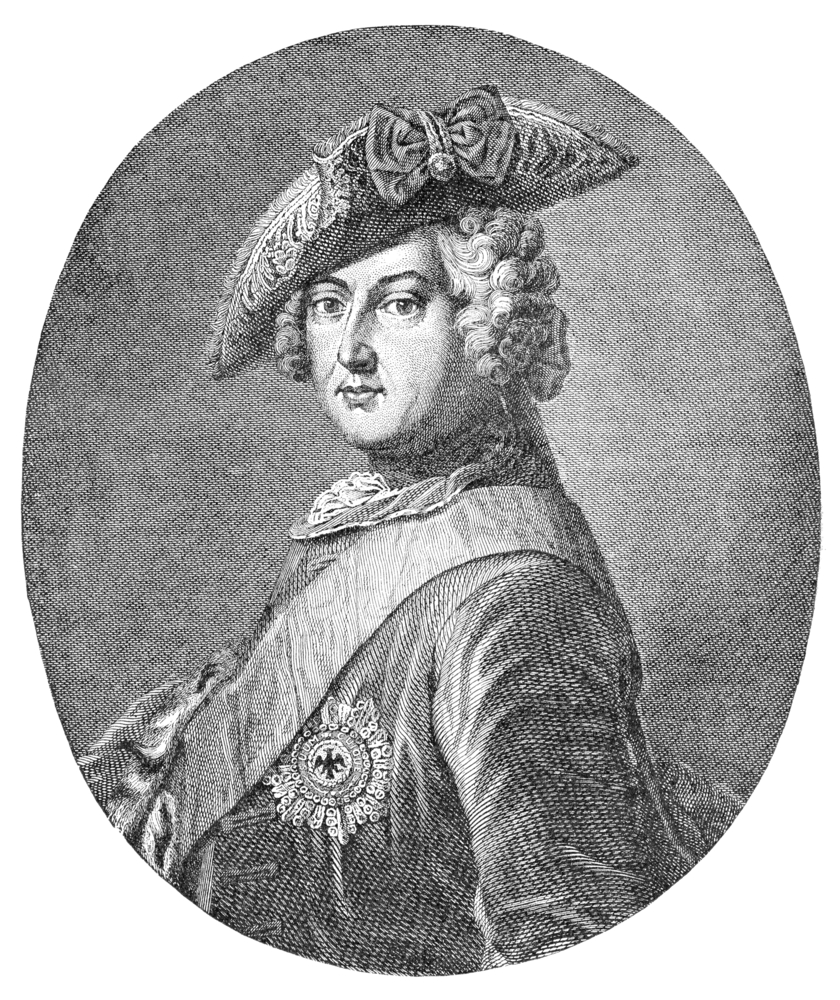

Prussia had welcomed many Huguenots after the revocation of the Edict of Nantes in 1685 by Louis XIV. It also allowed 50 of the most powerful Jewish families to settle in Berlin in 1671 when Leopold I expelled them from Vienna (the Jewish Quarter of Vienna will be renamed LeopoldStadt in honor of the Sovereign and his « salutary » decision).
Frederick William, the Great Elector, who had grown up in the United Provinces and who had been aware of the economic benefits of religious tolerance had been the architect of this « chosen » immigration (only the better-off were tolerated). He had thus been able to transform the small city of Berlin ruined by the Thirty Years’ War into one of the great cities of the German territories, soon the most important. Thus, a few generations after the expulsion of the Jews from Vienna (1669-1670), Austria was defeated by Prussia, which had welcomed many of the « Austrian rejections » leading France into defeat by that same Prussia who had also welcomed number of Huguenots, « rejections of France ».
Europe and the Enlightenment
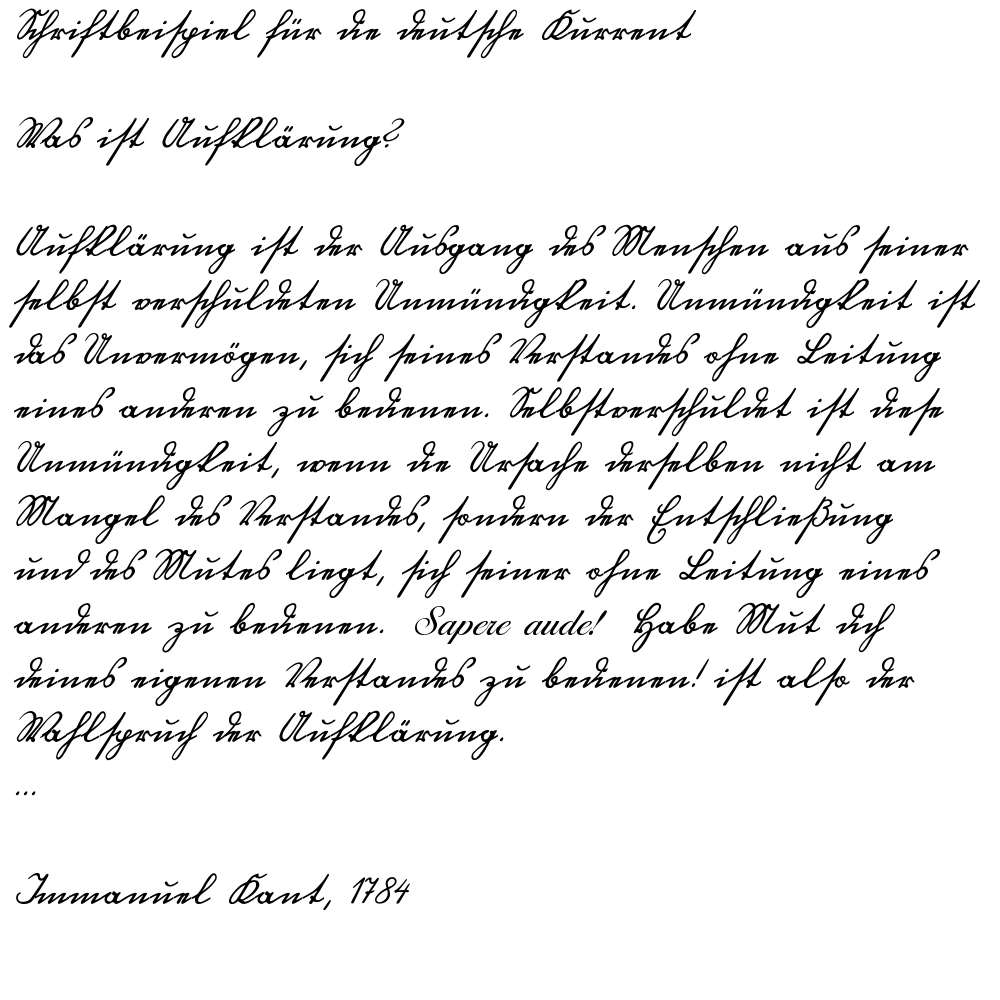
Prussia is not only distinguished by its victory but also by its commitment to the German Enlightenment, the « Aufklärung ».
If the Age of Enlightenment concerns many European countries, Portugal and Spain are still entangled in the aftermath of the Inquisition, which beyond harming the presumed marranos of these countries, entangles these countries in a a certain archaism which will not allow them to fully enter the modern world. The Lisbon earthquake at the dawn of this generation (1755) will help weaken the former powers of the South for the benefit of the emerging powers of the North. In the next generation, this natural disaster will not fail to influence the spirit of the Enlightenment.
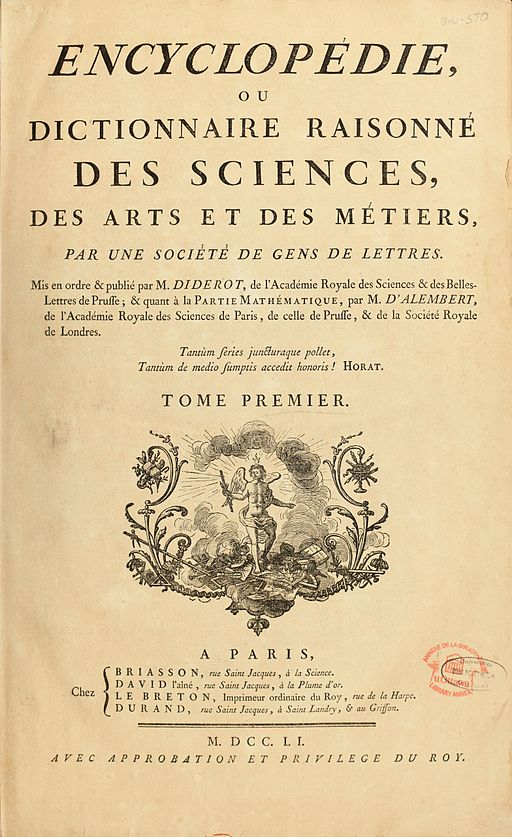
While Spain and Portugal are dying out, which in their time have been the light of Europe, Northern Europe is moving inexorably towards the Enlightenment. The United Provinces and England have paved the way. This generation is the generation that sees the publication of the first volumes of the encyclopedia in France. Under the aegis of Diderot and D’Alembert, the first volume appeared in 1751. Despite attempts of censorship, the adventure continues, the last volumes will be completed in 1772. This work will be decisive in the progress towards science and technology. ideas that will mark the next generations in France.
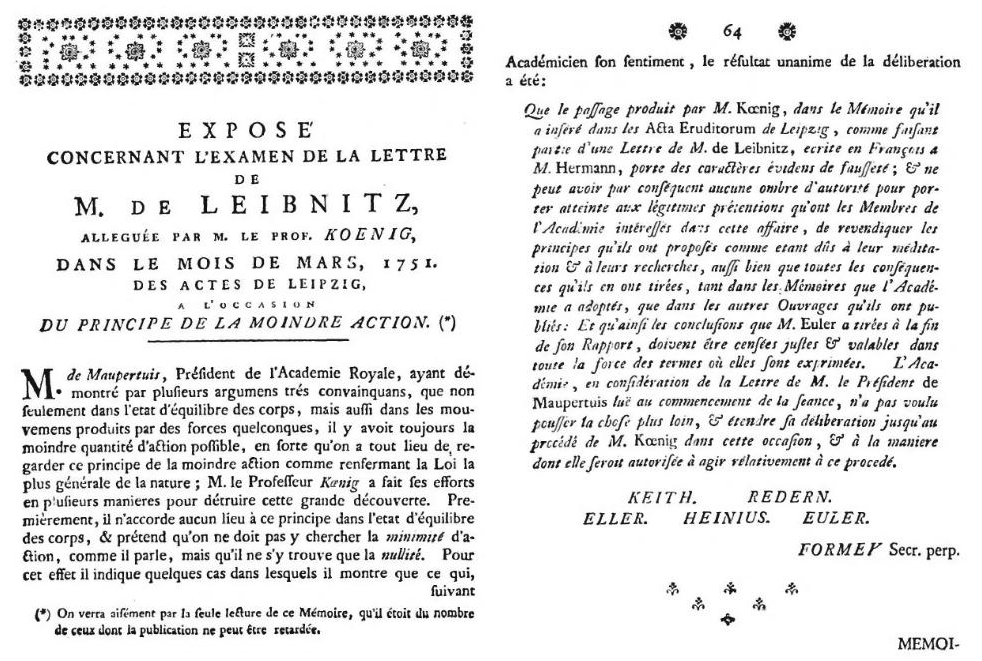
The German sphere is no exception, Leibniz created in 1700 the Berlin Academy of Sciences which becomes the current generation engine of the Aufklärung, the German Enlightenment.
Many French Maupertuis and D’Alembert will participate, but also more limited Voltaire and Diderot. Prodigious names of science and ideas will cooperate such as Lessing, Euler, Kant, Bernoulli, Lagrange if we limit ourselves to the present generation.
Moses Mendelssohn
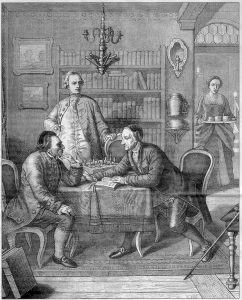
In Berlin a Jew, Moses Mendelssohn, initiates the « Haskalah », the Jewish Enlightenment and also allows the Aufklärung, the German lights to take on their full dimension. He first followed a strict religious and conventional religious education as he himself tells (in 1744) but without losing interest in so-called secular sciences. Thanks to Gumperz, he met Gotthold Ephraim Lessing in 1754. The latter with Friedrich Nicolai are outstanding figures of Aufklärung.
Lessing publishes in 1749 « Die Juden (The Jews) » which is a questioning of prejudices against the Jews.
Mendelssohn became one of the leaders in German literature and philosophy defending the German language against the use of other languages such as French. French is indeed considered as a noble language in Germany as in other European countries.
He won an award at the Berlin Academy of Sciences in 1763. He then had among other competitors Emmanuel Kant. The two philosophers will dialogue productively later, the works of the two philosophers impact each other.
Mendelssohn is still not admitted to the academy, the King of Prussia Frederick II, although « enlightened despot » still refuses a Jew to be accepted (it was not until 1842 that finally an unconverted Jew is there accepted).
By publishing the « Phaedon » in 1669, Mendelssohn was considered the « Socrates » of Berlin, key to the Aufklärung faith, the German lights and the Haskalah, the Jewish lights, hope for a Judeo-German symbiosis which unfortunately will come up a few generations later.
Rise of Freemasonry
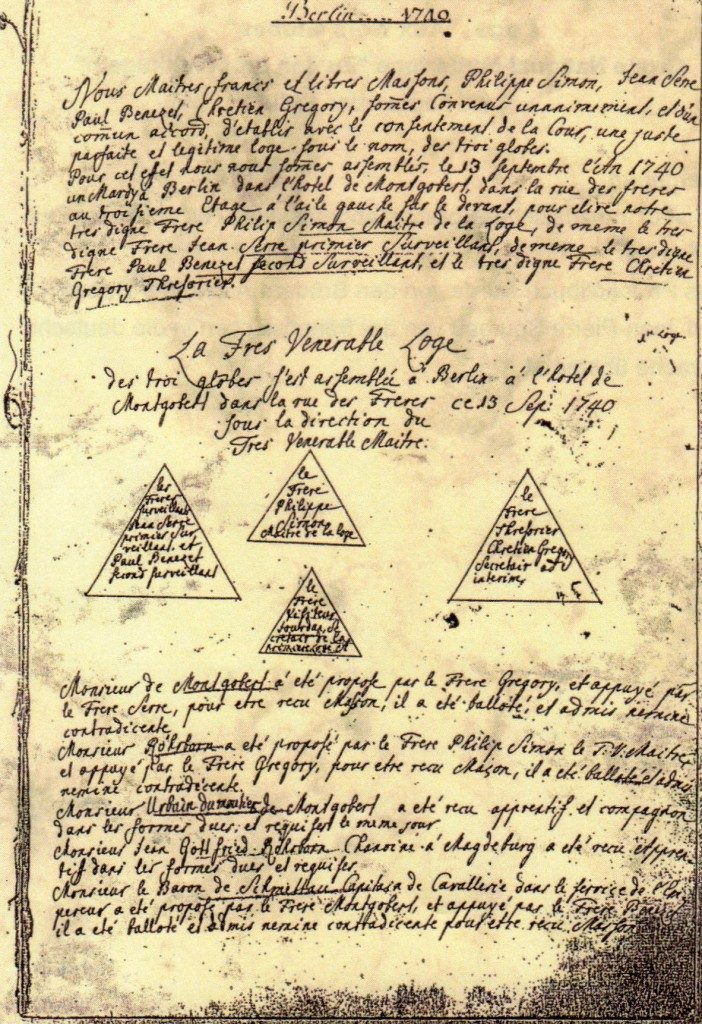
If the Jews can gradually take an active part in the intellectual and scientific life in Germany this is obviously due to the outbreak of Aufklärung. This is favored by the rise of Freemasonry, which tries to provide a response to the compatibility between the new sciences and the religious, resulting in a freedom of belief thus opening up a path for integration for Jews.
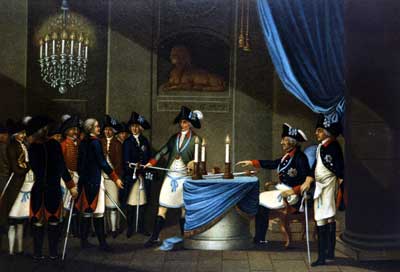
Frederick II, the enlightened despot who would allow German enlightenment to develop in Prussia and subsequently in the rest of Germany, was himself a freemason. Perhaps that is why he accepted Moses Mendelssohn, a Jew, to criticize – among other things – his excessive use of French in his works to the detriment of the German language.
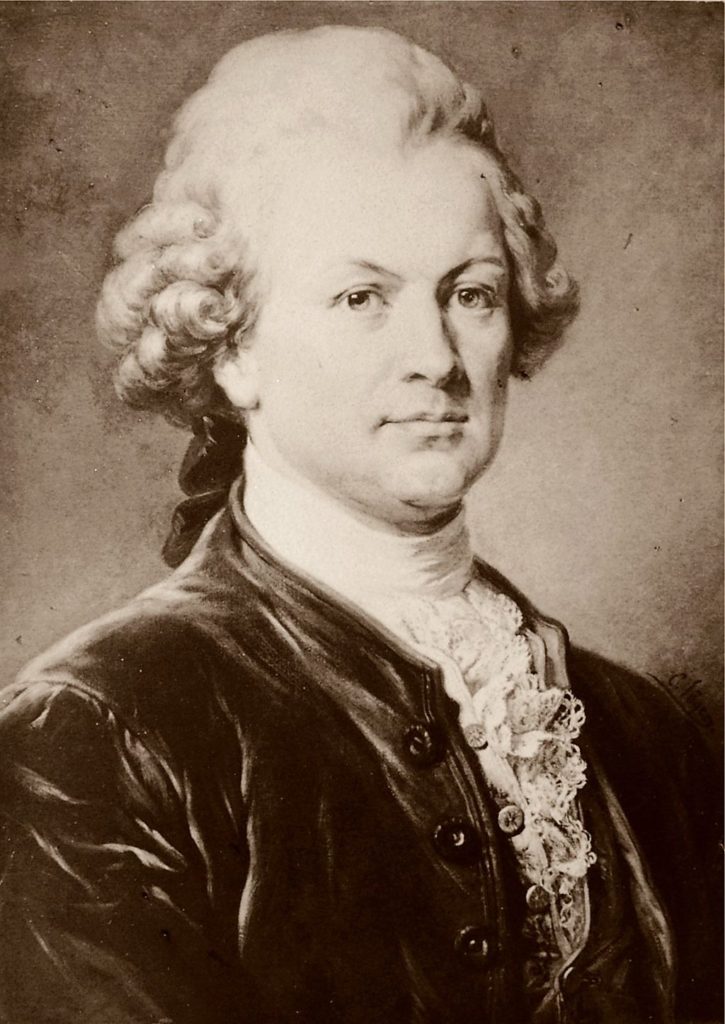
Many important figures of lights in Europe and America were Freemasons. Thus Lessing, who had a preponderant importance in the destiny of Moses Mendelssohn, wrote [1] : « I am as authentically Freemason as I am a Christian. »
Solomon’s Temple
Freemasonry believes he is the heiress of the builders of the cathedrals who themselves would have extended the secrets of the construction of Solomon’s Temple:

- The Freemasons [2] claim that their ancestor was Hiram, architect of the Temple of Solomon; the secrets of the Temple have reached the builders of cathedrals who are free from all servitude, formed the first associations of « Freemasons. These groups, of which one can only be part after an initiation, disappear at the end of the Middle Ages, except in England, where the « free masons », at the end of the 17th century, are moving towards an intellectual research, tolerant and philanthropic. The Grand Lodge of London, founded in 1717, serves as a model for the lodges of Russia, France, Austria or America, in spite of the splits and currents which oppose the various obediences. Among the famous Freemasons of the eighteenth century, we can cite, besides Joseph II, many French aristocrats and probably Mozart, whose magic flute is dotted with Masonic symbols. ».
Thus even in Austria, through the Masonic lodges, the Enlightenment appears.
In England – the country that has both initiated the European enlightenment movement and the modern Masonic movement – for the first time in Christian Europe, a law is passed granting full citizenship rights to Jews. Even if this law is quickly annulled, it marks a turning point in the fate of Jews in Europe and in the road to emancipation.
It was in England that a few years before, in 1723, the basic rules of Freemasonry had been defined:
- Highly [3] related to the political and religious context of England at the time, the so-called Anderson Constitutions recommend to Freemasons, in their First Title, the most famous (« Regarding God and Religion »), to adopt a religion « on which all men agree, leaving everyone with their own opinions ». […]
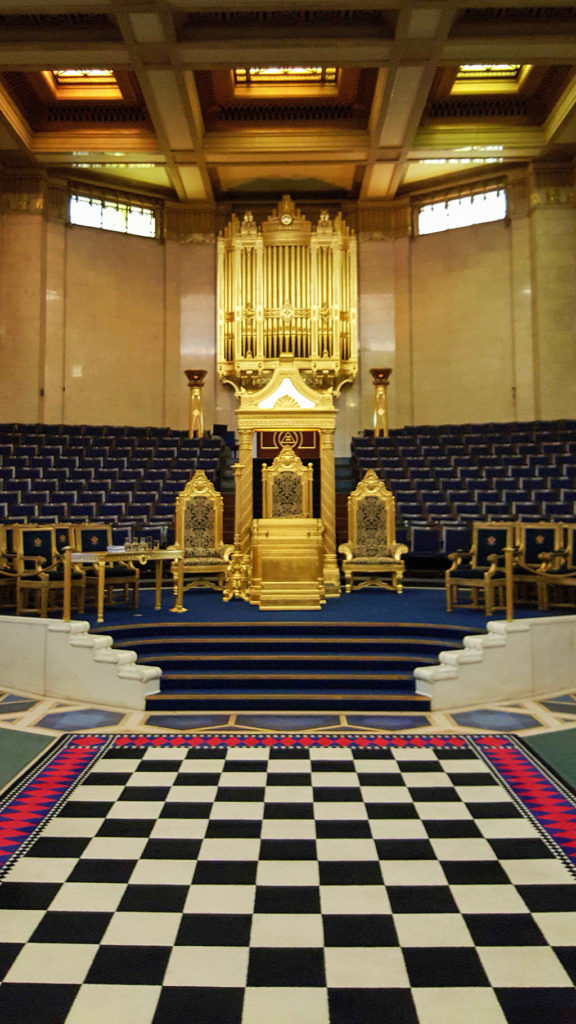
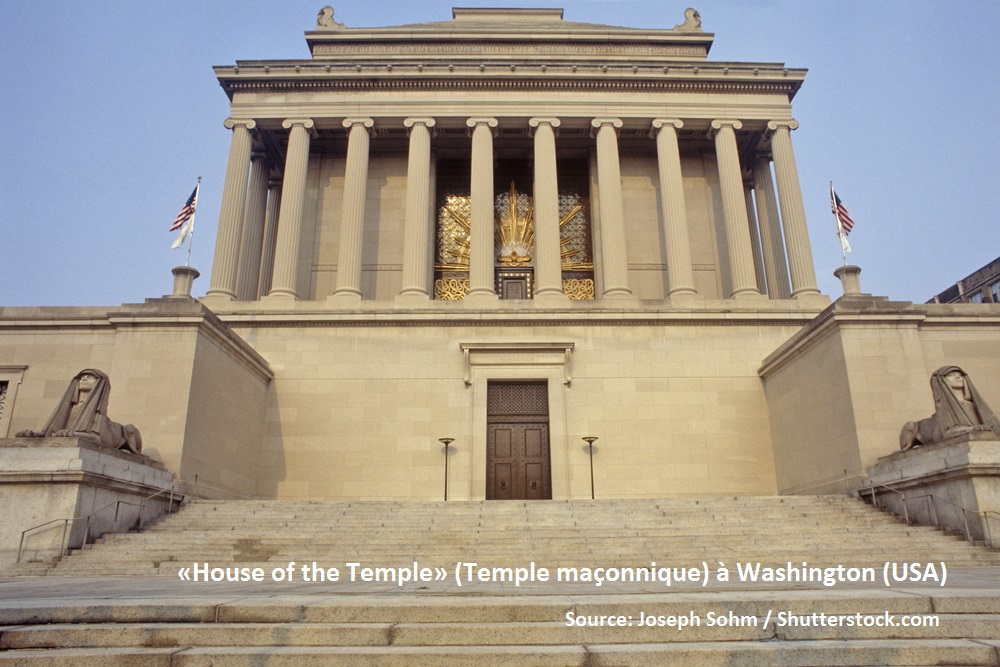
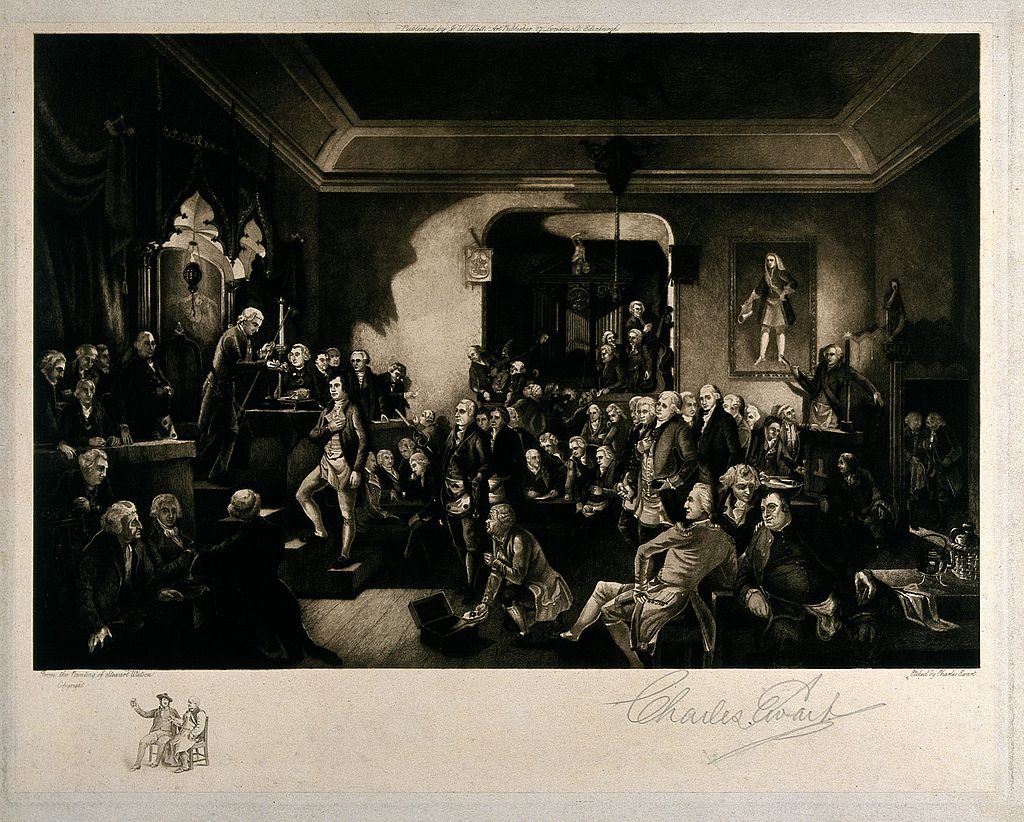
Solomon’s Temple[4]is an essential reference for Freemasonry and is often symbolically reproduced in Masonic temples where a checkerboard floor, called mosaic pavement, serves as a reminder of the Holy of Holies of the Temple of Jerusalem. The word Temple is used by the Freemasons who work for the glory of a Great Architect of the Universe, who for most of the followers, is the God of religions of the Book which is thus confused with the God defined by Judaism. For this reason, while Jewish institutions have always been suspicious of the Freemason movement, a Jew’s affiliation to Freemasonry is not considered heresy.
The reaction of other monotheistic religions is much more negative. Christianity has issued from the very beginning of Freemasonry many papal bulls against the movement and its followers. Islam refuses until today Freemasonry fearing a Judeo-Masonic conspiracy. The purpose of the Francemons is to reconstruct, symbolically, the « Temple of Solomon », that is to say, to contribute to building the Temple of a « more just and enlightened humanity » image of the true « Temple of Solomon, « the first temple dedicated to the Lord. The lodge is a decal of the « Temple of Solomon ». The Masonic meetings are staggered and take place from midday to midnight, mainly at night.
It is therefore the Masonic universe that the psalmist evokes in the psalm of this generation. This is not worth adherence to the Masonic ideas but it describes the importance of this movement in the extension of the European Enlightenment to move towards a world of tolerance marked by the progress of ideas and sciences. This will allow Jews to gradually break out of their pariah position and actively participate in the birth of the modern world:

- A song of ascents. Behold, bless the Lord, all servants of the Lord …
- In speaking to « all servants of the Lord » the psalmist addresses himself not only to the Jews but to all who want to serve the Lord in their own way.
- … who stand in the house of the Lord at night.
- Lift your hands in the holy place and bless the Lord.
- The Masonic Temple reproduces the Temple of Solomon and is supposed to be for these adepts the house of the Lord (« The Great Architect »), the followers gather especially at night to advance the world of ideas and sciences.
- May the Lord bless you from Zion, He Who made heaven and earth.
- The psalmist concludes by reminding all the same that the place of the authentic temple is Jerusalem to the Glory of the Lord who is the only architect of this world, that is to say, who builds the sky and the earth.

[1] Quoted by Maurice Ruben Hayoun: « The lights of Cordoba in Berlin, An intellectual history of Judaism (2) ». (French: « Les lumières de Cordoue à Berlin, Une histoire intellectuelle du judaïsme (2) ». (p. 96/97) )
[2] (Directed by) Jean Delumeau: « History of the world, from 1492 to 1789 ». Chapter: « The reign of Maria Teresa of Austria ». (French: « Histoire du monde, de 1492 à 1789 ». Chapitre : « Le règne de Marie Thérèse d’Autriche ». (p. 425) )
[3] « The world of religions: 20 keys to understanding Freemasonry ». (French: « Le monde des religions : 20 clés pour comprendre la franc-maçonnerie ». (p. 24 à 27) )
[4] From: « The World of Religions: 20 Keys to Understanding Freemasonry ». (French: « Le monde des religions : 20 clés pour comprendre la franc-maçonnerie » ).

